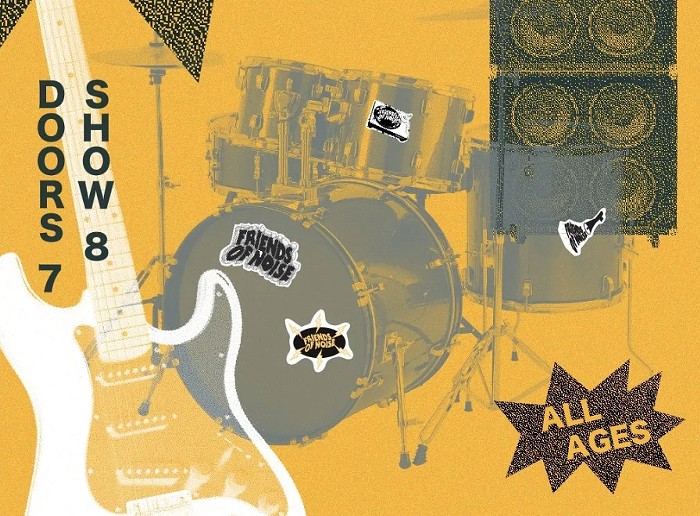“Honestly, well, the ticket is worth the price,” Portland musician Julian Morris sings in the first breath of Layperson’s new folk-pop EP, Tidings. This opening track, “The Big Borrow,” comes across like an exhausted sigh of relief at the end of a long journey. For Morris, it’s the sound of resuming his place as “master of my own game.”
Morris currently plays in the local bands Little Star and Post Moves, but his latest record as Layperson represents a major reclamation of his voice.
“I didn’t have anybody to play in my own project, so I was just like, all right, I’m gonna learn how to play bass and drums and just see where this goes,” he says. “And that coincided with me deciding that I wanted to transition. When I started taking hormones, my voice changed and dropped like an entire octave. So I also didn’t feel confident in my ability to sing.”
Morris wrote and recorded the song “Voice” on Little Star’s 2016 goth-punk album Being Close while he was taking hormones and hearing his voice transform, which he describes as “a very meta experience.” “I am the which one of these things is not like the others,” he sings, “and I’m gonna give you my voice.” Morris sounds conflicted—caught between the catharsis of change and the desire to stay grounded in its wake.
“[Tidings is] the first body of work I’m putting out post-transition,” Morris says, “which has had such a huge effect on my voice, which I think of as my primary instrument. So I kept having all these fears that people would hear it and be like, ‘Man, he really shouldn’t have taken those hormones, he ruined his gift’—that was a huge anxiety for me.”
Morris’ apprehension resulted in a lot of self-editing and second guessing, which he says could make the songwriting process feel like “a pressure cooker.” But he says writing the new record taught him to be “more gentle with myself,” and this newfound gentleness courses through Tidings. It’s reflected in softer folk-pop sounds, with honeyed harmonies, jangly Stephen Steinbrink-esque guitars, and revelatory lines like “I’ll never burn/I was just waiting my turn/’Cause singin’ my song’s all I care about,” which he hopes echo the “dead-on, salt of the earth” lyrics of artists like Iris DeMent and Townes Van Zandt.
Morris notes that the five songs on Tidings “[aren’t] that connected to my transition. Obviously it’s a huge part of my life, being a transgender person, but I feel like they’re a lot more about the terror of intimate relationships that can exist for anyone, regardless of gender identity.”
This terror of baring your raw self to a partner and exposing your weaknesses and insecurities is universal. But Morris notes that for “being a young person and a queer person and not wanting to engage in super traditional relationships,” singing about romance can feel radical.
Midway through the album, the perspective zooms out for standout track, “All of Us.” Morris says the song was an attempt at “a non-hokey way of looking at yourself as [part of a] community with the larger world.” He succeeds with layered vocals, ruminative guitar riffs, and the frankness of lyrics like “We came for love, but it’s not the only thing that we want/To ride through the dust/And feel something greater than us.”
Though Tidings is the product of major changes for Morris, it’s anything but backward looking—its songs resonate with the kind of infectious, wide-eyed joy that sounds ready for whatever’s next.


















